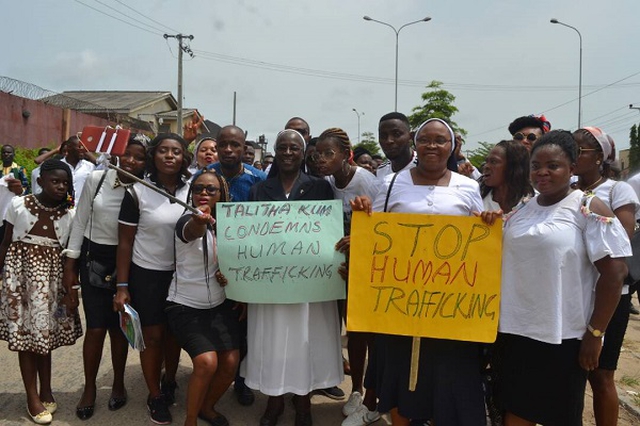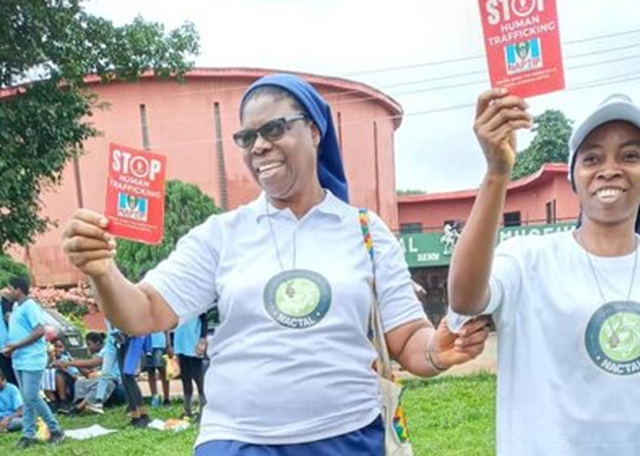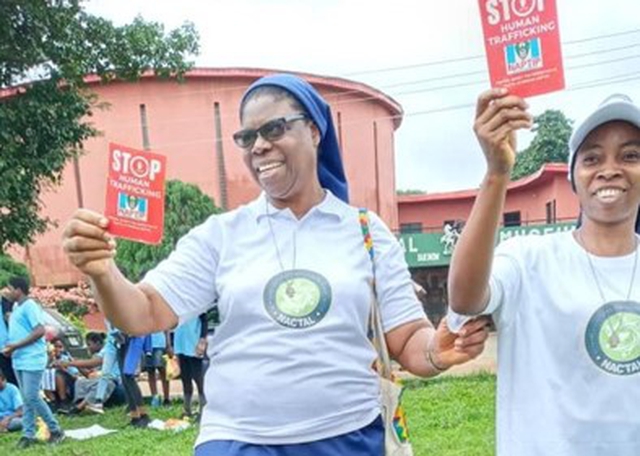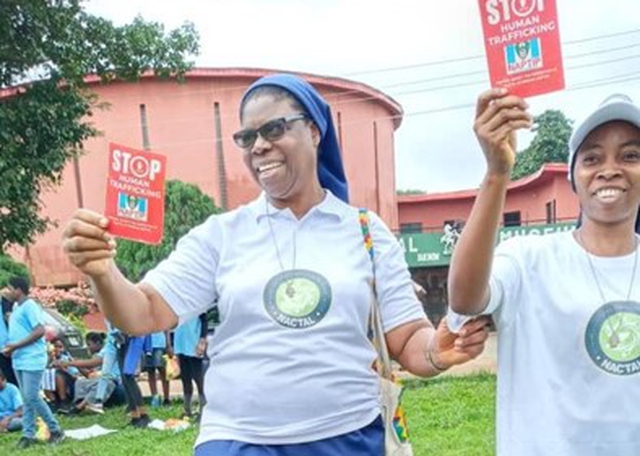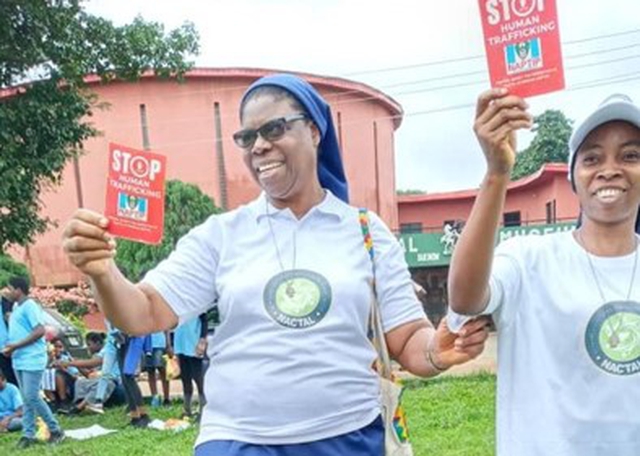Brief History of COSUDOW:
Nigeria Conference of Women Religious (NCWR – Catholic Sisters) was touched by the exploitation of Nigerian women and girls in Europe and indeed elsewhere in the world caught in the web of Human Trafficking, a new form of slavery. They felt a strong need to put …
Read more
Brief History of COSUDOW:
Nigeria Conference of Women Religious (NCWR – Catholic Sisters) was touched by the exploitation of Nigerian women and girls in Europe and indeed elsewhere in the world caught in the web of Human Trafficking, a new form of slavery. They felt a strong need to put up a fight to liberate these daughters of Africa from the shackles of traffickers, the new slave masters. In order to confront this new form of slavery, the Major Superiors of NCWR, under the leadership of Sr. Patricia Ebegbulem SSL, travelled to Europe to see things for themselves. On coming back, they established the Committee for the Support of the Dignity of Women (COSUDOW) in 1999 to combat human trafficking. They also located the office in Benin City in Edo State where most of the trafficked victims in Nigeria came from. Since its establishment in 1999, COSUDOW has been in the forefront in the fight against Human Trafficking in Nigeria, protecting victims of human trafficking, preventing human trafficking through advocacy and public enlightenment campaigns, prosecuting traffickers and reintegrating victims and survivors of this ugly trade. It also investigates cases of threat to lives of families of victims who have decided to quit prostitution for a more decent living.
COSUDOW is a faith-based organization in Benin City, Edo-State, Nigeria which strives to uplift the lives of downtrodden young girls and women irrespective of tribe, race and religious affiliation.
COSUDOW is located at 6A Ehaekpen Street, Off Igbesamwan Street, Off Akpakpava Road, Benin City, Edo State, Nigeria at Latitude (x.y) 6.335175 and Longitude (x.y) 5.628047
COSUDOW is registered with the Nigerian Corporate Affairs Commission (CAC) in 2005, Ministry of Youth and Sports, Edo State 2004, and Ministry of Women Affairs and Social Development, Edo State in 2012.
COSUDOW has over the years become a well-established, organized and recognized institution both by national and international bodies who refer to it as one that can be duly relied upon as a leading organization in preventing, protecting and reintegrating victims of trafficking (VoTs) giving them hope of recovery and self-reliance. It also serves as a resource point for interviews, researches, collaboration and industrial training attachments.
COSUDOW rescues, restores, reconciles and rehabilitates victims repatriated or voluntary returnees. It creates awareness in schools, communities, streets, markets, etc, on the reality and ills of human trafficking in order to stop or prevent its further spread. It liaises and collaborates with governments and non-governmental organizations (NGOs) to tackle the menace and refers to them when appropriate . Being the brain child of NCWR, Congregations take turns to run it. It is presently being managed by the Daughters of Charity of St. Vincent de Paul with Sr. Philomena Okwu DC as the present Coordinator.
VISION STATEMENT
A society where young girls and women are liberated, become empowered, active, valued and protected and rise above cultural nuances that mitigate against their dignity.
MISSION STATEMENT
Promoting the dignity of young girls and women through education on their dignity, rights, sex, family and responsibilities and advance the wellbeing of the down-trodden women exposing them to equal opportunities in the social-political sphere.
Core Values:
Respect, Compassion, Charity, Integrity and Trustworthiness with the mercy of God as our guiding principle
Objectives:
1. To counsel and rehabilitate victims/survivals of human trafficking who have been repatriated or voluntarily returned from Europe and elsewhere
involved in sex exploitation or trade.
2. To educate and enlighten the general public, families and the young people of the hazards involved in travelling out of their country of origin
without legal documents and for prostitution.
3. To ensure that victims of human trafficking and their family members are securely protected after they have opted out of exploitative prostitution.
4. To guide and train victims of human trafficking and potential migrants on skill acquisition to enable them have alternative and meaningful
livelihood.
5. To give consultancy advice on business plan in other to find ways of giving victims of trafficking marketable skills and help them set up ventures
that will enable them have a source of livelihood.
6. To work in collaboration with Governmental and Non- Governmental agencies working to end human trafficking
